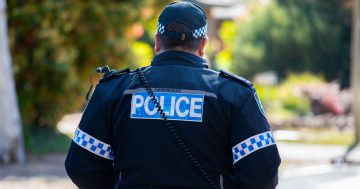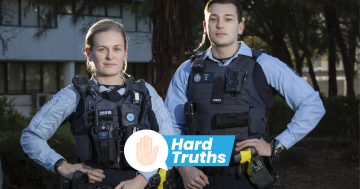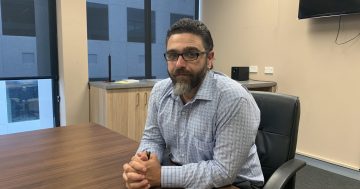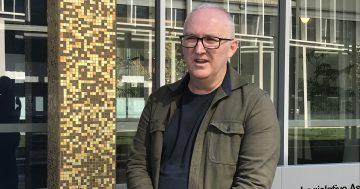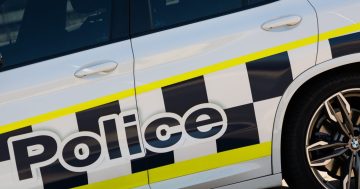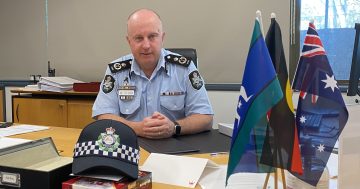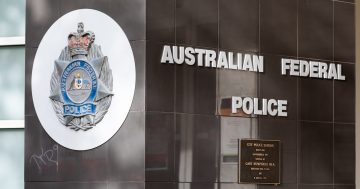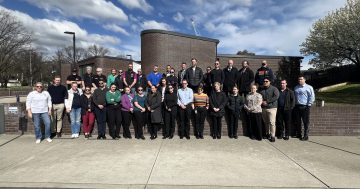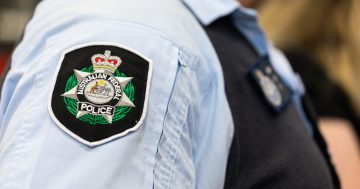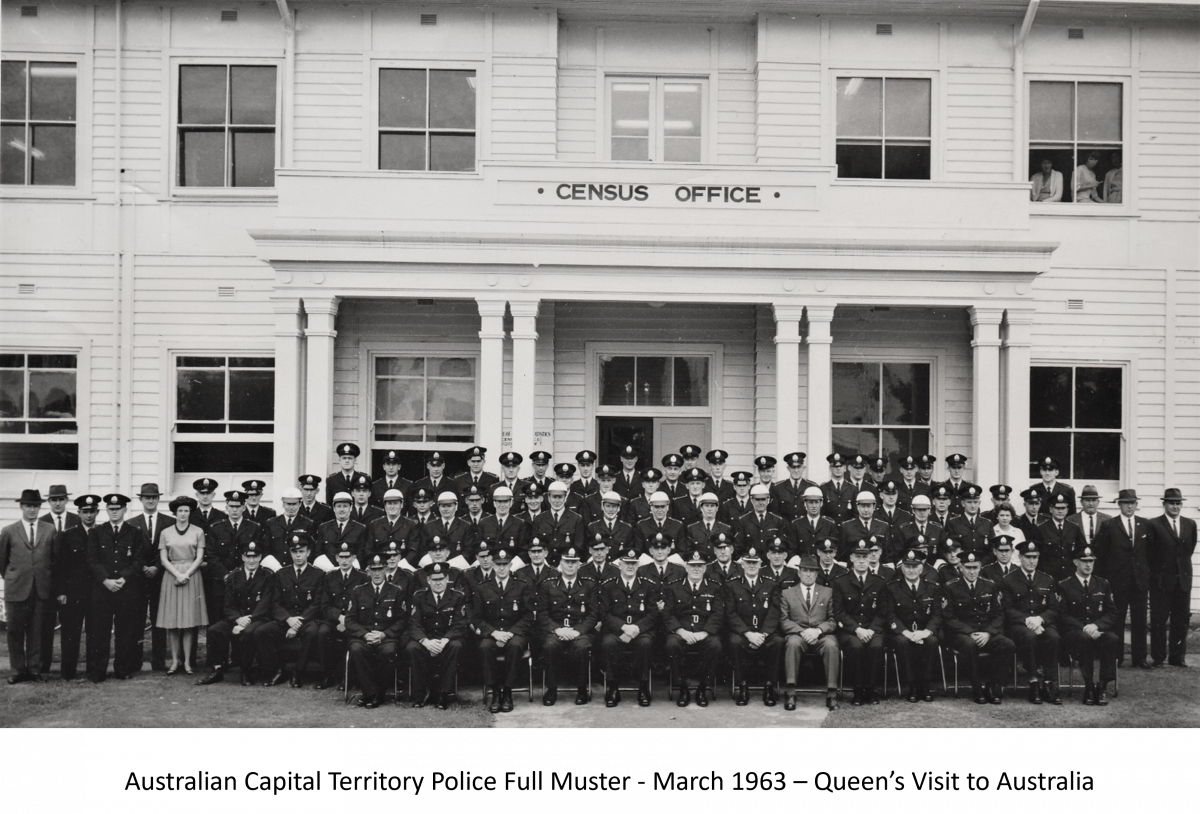
Do you recognise yourself or any family members here in this 1963 photograph of ACT Police at full muster, in preparation for the 1963 royal visit? Photo: ACT Retired Police Members Group.
They were the sort of blokes who only ever went by their nicknames: Gurka (he never took prisoners), Goat’s Breath (do you need to ask?), Trout (bit fishy?), Rowdy (apparently he was), a training officer by the name of Colin Winchester was called Dog because he was so dogged about getting things done, and there was Two Ls – one Dave Willson.
They were all mates, always had each other’s backs and can claim with pride that they had the sort of friendship that made them family. Yet for many of them, making mates your “family” was because, ironically, the very nature of their job often ostracised them from their own communities.
They were policemen. Canberra’s first, and some say, its best, when the ACT Police Force had yet to be subsumed by the amalgamation with the Australian Federal Police.
A total of 943 badge numbers were issued to members of the Australian Capital Territory Police Force from the day it began on 28 September 1927 to when it was abolished on 18 October 1979.
At that time, there were around 560 serving members.
It was, if you ask anyone remotely associated with it then or now, unique.
Why? Because its ‘beat’ was the nation’s capital, the seat of government, home of the Governor-General, the High Court and the many representatives of other governments from around the world, as well as the nation’s youngest urban population.
Dave Willson, who reached the rank of Acting Sergeant in his seven years, will tell you that of all the other roles he’s held in his 71 years – those seven years will stay with him forever.
Dave Willson was one of the originals. Today he is on a mission. He is a foundation member of the ACT Retired Police Members Group, formed to honour the ACT Police Force.
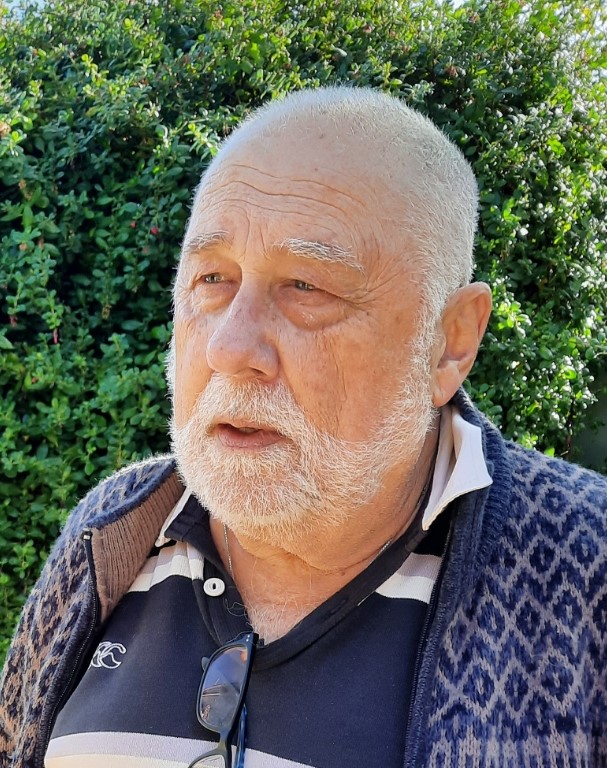
Dave Willson wants to preserve the legacy of the ACT Police Force. Photo: Supplied.
Although the ACT Police Force hasn’t been around for more than 40 years, he reckons its role, achievements and legacy should never be forgotten.
It was a different brand of policing back then, he says. Briefings after traumatic jobs usually meant someone senior would put a wad of notes on the bar that night or sausages and a slab the following weekend.
“You had your family, of course,” Dave said, “but the only ones who really understood what you went through was your other ‘family’, the blokes you worked with. From day one, you’d have a buddy, you’d work with them, learn about their families. Policing is the sort of job that binds you together – I guess because it’s not something that’s readily understood by most of the community.”
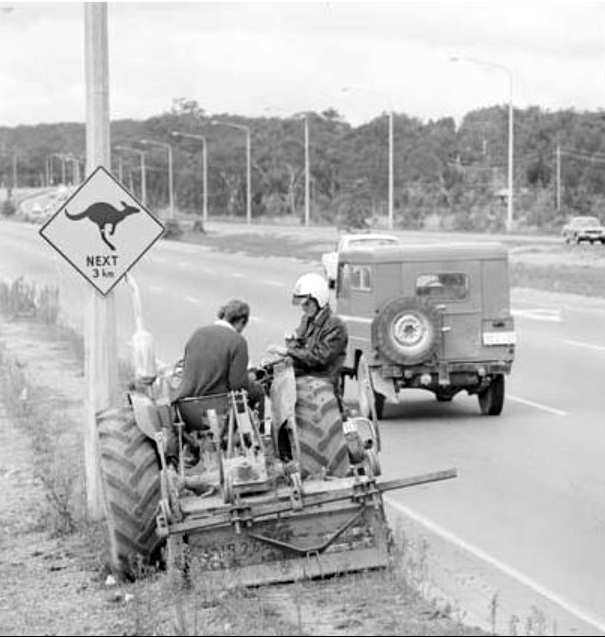
An officer from the old Belconnen squad dealing with a truculent tractor driver. Photo: ACT Retired Police Members Group.
Dave said working for the ACT Police in Canberra was like no other job.
“You would never know what was going to happen when you left home for work that day. One day you might be sent to a diplomatic mission, or into the middle of a demonstration, a domestic, or spend the night guarding an embassy.”
Dave said he understood, but was not a fan, of the amalgamation of the ACT Police Force into the AFP: “We actually hoped it would go away,” he joked.
But the dilemma was resolved for him when he was injured on the job, and not seeing himself as a pen pusher confined to an office, he quit.
“I look at all the occupations I had over the years,” he says, ” from insurance, commercial, scientific goods administration, Medicare … lots of jobs. I spent more time in them than in the police, but it was those years in the job that I will never forget.”
Dave, now 71, has kept in contact with the ACT Police “family” that’s still around, devoting much of his time to ensuring that this small group of brave souls “does not get lost in history”.
“There seems to be a tendency to bury the existence of the ACT Police Force,” but he’s not having it.
“If we have anything to do with it, it will live on.
“A lot of people went through a lot back then and they need to know they weren’t alone then and not alone now.”
He wants to track down people who devoted their lives to ACT service and ensure their life and work are on the record.
If you were one of the original ACT police officers and would like to be involved in the group, email actpolicelegends@gmail.com.












